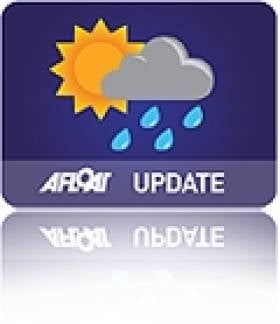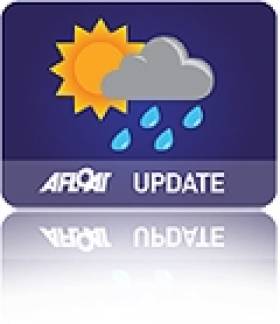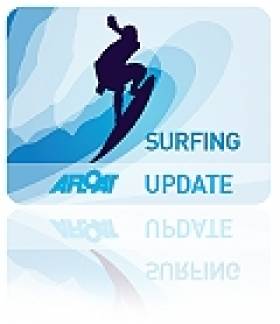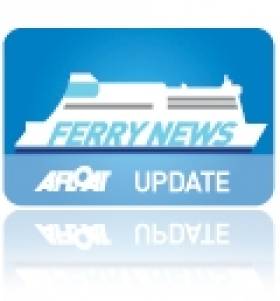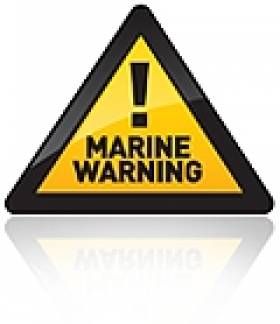Displaying items by tag: winds
Doyle Best Single Sculler at Head of the River in Belfast
#Rowing: Philip Doyle of Queen’s University won the battle of the senior single scullers at the Lagan Scullers’ Head of the River in Belfast. He had just over 17 seconds to spare over Portadown’s Sam McKeown. The fastest crew on the day was the Queen’s University senior men’s quadruple. The event was run in strong winds, but coming from the east, they did not prove to be seriously disruptive. The organisers were pleased that the Ireland under-23 women's group took part and that some junior scullers could compete, as their trials had been cancelled.
Lagan Scullers’ Head of the River, Belfast, Saturday (Selected Results):
Race One
Overall: 1 Queen’s Univ (P Doyle, senior single sculls) 11 minutes 56.2 seconds. 2 Portadown (S McKeown, senior single) 12:13.3, 3 Queen’s (T Oliver, senior single) 12:15.9.
Men – Sculling, Quadruple – Jun 15, coxed: Portora 12:40.5
Double – Jun 16: Portora 13:04. Masters: City of Derry 13:29.8.
Single – Senior: Queen’s (Doyle) 11:56.2. Jun 18A: Methody (C Macrae) 12:47.2
Women – Sculling – Quadruple – Masters: Lagan Scullers/Belfast BC 15:01.8.
Double – Jun 18A: Bann 12:55.8.
Single – Intermediate: Belfast BC (O Blundell) 14:09.3. Club Two: Queen’s (R Brown) 15:01.1. Jun 16: Belfast RC (A Hall) 16:05.8.
Race Two
Overall: 1 Queen’s men’s senior quadruple (Roy) 10:43.6, 2 RBAI men’s sen quad 11:14.1, 3 Queen’s men’s sen quad (Evans) 11:31.0.
Men – Sculling, Quadruple – Senior: Queen’s (Roy) 10.43.6. Jun 16, coxed: Methody 11:56.5.
Double – Jun 18A: Bann 11:51.
Single – Intermediate: Portora (C Laughlin) 12:33.7. Club Two: Belfast RC (T McCaughtry) 12:51.4. Novice: RBAI (T Lyons) 14:57.3. Jun 15: Portora (O Donaghy) 13:59.4.
Women – Quadruple – Jun 16, coxed: Portora 13:44.4. Jun 15, coxed: Bann 14:10.8.
Double – Seniors: Fermoy/Belfast BC 12:53.7.
Single – Jun 18A: Bann (H Scott) 13:45.2. Masters: Belfast BC (U Purdy) 15:15.6.
Race Three
Overall: 1 Methody junior 18A quadruple 10:43.1, 2 Queen’s senior double 10:57.4, 3 Belfast BC, Portadown 11:18.4.
Men, Quadruple – Jun 18A: Methody 10:43.1. Jun 18B, coxed: Methody 12:18.5.
Double – Senior: Queen’s 10:57.4.
Single – Jun 16: Portora (N Timoney) 13:40.1. Masters: Portora (D Murphy) 13:40.8.
Women, Quadruple – Jun 18A: Methody 12:48.6
Double – Jun 16: Bann 14:50.9.
Mixed Quad – Portadown 13:40.2.
Public Warned To Avoid Coastal Areas As Storm Force Winds Sweep In
#Weather - The Irish Coast Guard has warned the public to stay away from coastal areas today (Friday 28 December) as high winds are expected to reach speeds of as much as 140km per hour in some exposed areas.
It marks the third weather warning for gale force winds this week, as Met Éireann advises of south to south-west winds developing during the day with gusts of 90-100km per hour.
Exposed parts of Connacht and Donegal are set to face the worst of the storm-force winds, with severe gusts of storm force 10 - 100-140km per hour - expected between 6pm and 9pm on the coast from Slyne Head to Erris Head to Malin Head.
Speaking to The Irish Times, meteorologist John Eagleton suggested the possibility of trees coming down and electrical poles falling as the winds strengthen over the course of the day.
"We will get a blast around the evening time," he said, "and I wouldn't like to be sailing a boat along the west coast during those hours."
UK Laser Sailors in £50K Irish Sea Crossing Challenge
#LASER - A pair of British sailors are set to embark on an intrepid crossing of the Irish Sea using just two single-handed Laser dingies.
David Summerville and Steve Cockerill had originally planned to make the crossing in September last year, but those plans were scuppered by 50-knot gale force winds and a 12-foot tidal swell, according to Incentive Travel.
But the duo is now planning to try again, with the backing of the Ramada Plaza Southport.
“David and Steve will be covering 115 nautical miles during the challenge," said Ramada Plaza general manager Enda Rylands. "They will set off from my own home town of Dublin and finish in Southport, aiming to raise £50,000 for mental health charity Mind and the John Merricks Sailing Trust."
Summerville, a 53-year-old grandfather of two who runs a boat repair business, said the date of the challenge would again depend on weather and tidal conditions, and that the pair is ready to depart any time from mid-April to mid-September.
It's not the first time that an Irish Sea crossing has been done in a Laser as Tiffany Brien achieved the feat in 2010, sailing single-handedly the 30 miles from Portpatrick in Scotland to Belfast Lough.
But Summerville and Cockerill's ambitious undertaking, at more than three times that distance, would surely get them a place in the record books - provided the weather goes their way!
Gale, Flood Warning In Effect for Ireland Today
#WEATHER - Met Éireann is warning that more gale force winds will affect many parts of Ireland and the Irish Sea today (28 December).
According to the forecaster, stormy conditions over Connacht, Ulster and parts of north Leinster will see gale force westerly winds with gusts of between 100 and 130 km/h.
The worst winds are expected in exposed coastal and hilly areas of Ulster and Connacht. There is also an increased risk of flooding as a result of high astronomical tides combined with very high seas.
Cornish Surfer Rides Ireland's Record Biggest Wave
#SURFING - British surfer Jayce Robinson wasn't about to let the largest wave ever recorded off Ireland's shores go by without giving it a shot.
And as Sky News Online reports, he was captured doing exactly that on Tuesday afternoon.
The Cornish surfing pro told the website: "It was definitely the biggest barrell I've ever surfed.
"I was a little nervous but I didn't have time to think about it - it's almost like a car crash, you don't know what's happening."
Robinson rode the giant wave for 20 seconds before the lip crashed down and knocked him off his board.
His surfing partner Lyndon Wake, who towed him to the swell at Mullaghmore Head, said: "It's always a worst case scenario when your tow partner wipes out. Lucky he managed to come out the other side OK."
As previously reported on Afloat.ie, storm force winds off the coast of Donegal produced monster rollers of over 20 metres (over 60 feet) in height detected in Donegal Bay.
Mullaghmore Head will once again welcome the world's top big wave surfers for the second annual Tow-In Surf Session in the New Year.
Expected Strong Winds Lead to Ferry Cancellations
Storm force winds are expected across the country later on this evening and into tomorrow.
Met Éireann has warned of gale to storm force winds tonight with speeds of up to 130km/h, strongest in the northwest.
Extremely high waves are expected on southwest, west and north coasts.
Irish Ferries has cancelled a number of its Swift sailings between Dublin and Holyhead because of forecasts for the Irish Sea.
P&O's scheduled sailings between Larne and Cairnryan this afternoon have been cancelled, as have this evening's sailings between Larne and Troon.
Coastal Areas Braced for Flood Risk Tonight
A combination of high tides, high winds and low pressure increase the possibility of coastal flooding, particularly at high tide around midnight on Sunday 7 November and midday on Monday 8 November.
A deep low pressure centre is expected to move down across Ireland tonight, clearing away slowly during Monday. This weather system has the potential to bring some severe weather to Ireland. Rainfall totals are likely to reach 25mm - 30mm in places during Sunday and Monday. While not excessive, this rain may lead to some localised flooding on roads. The strongest winds associated with this weather system are likely to be well to the west of Ireland; however if the track of the low pressure is further east than currently expected, then these very strong winds may possibly affect our west coast.
The principal dangers from this weather system will be due to very high seas off the southwest and west coast (waves approaching 9m) and coastal flooding due to a combination of high tides, very low pressure, storm surge and onshore winds. The danger period extends through Sunday night and, for the east coast, much of Monday also. Valid from: 12hrs Sunday Nov 7th To: 06hrs Tuesday Nov 9th.
Householders, property owners, motorists and pedestrians are warned that there is a risk of coastal flooding in Dublin in the next 36 hours according to a Dublin city council update issued last night.
More from Cork City Council HERE
More from Dublin City Council HERE



























